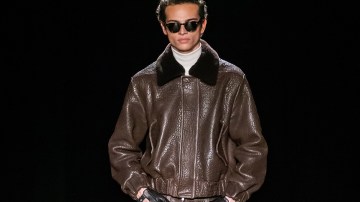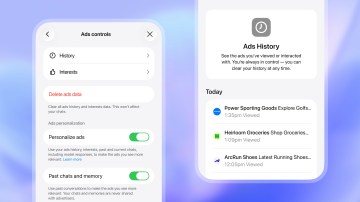When TikTok creator Elijah Yeroushalmi took a trip to Costco with his dad in August 2024, he didn’t go for the free samples or bulk foods that many Costco shoppers love. Instead, on a tip from one of his followers, he sought out the fragrance aisle.
“It was one of the videos where I was going to TJ Maxx. [My followers] were like, ‘Can you go check out the Costco fragrance selection?’” he recalled. “And I was like, ‘No way they have fragrances.’ I went to Costco, and lo and behold, they had fragrances.”
At Costco, Yeroushalmi found fragrances from brands like Juliette Has a Gun, Versace and Calvin Klein all for $59.99 per 100-milliliter bottle. But the perfume influencer is no stranger to a good deal. He often showcases to his more than 500,000 TikTok followers where to score discounted fragrances at retailers like Ross, TJ Maxx and Marshalls. While the inventory changes week to week, a perusal through TJ Maxx’s online offerings shows a 100-milliliter Byredo Velvet Haze for $209, compared to its full price of $320. Or a 100-milliliter Creed Silver Mountain Water for $279.99, which typically retails for $470.
With even the low end of the market starting at $50 a bottle, perfumes typically represent the priciest product at the beauty counter. And perfume prices are getting higher and higher as consumers seek out a relatively accessible form of luxury. But savvy influencers and fragrance snoops on Reddit and TikTok are getting wise to the opportunity to buy designer and niche brands at a steep discount at off-price or wholesale outlets.
“There are two levels of bragging. There’s, ‘I don’t need the discount,’ or, ‘Why are you spending all that, when I got the same thing for much less?’ It’s not even a dupe. It’s the same exact thing,” said Larissa Jensen, svp and global beauty industry advisor at market research firm Circana.
With extravagant packaging or exclusive distribution, fragrance brands have many avenues to keep the perceived value high. But though finding a high-priced brand like Creed or Loewe packaged in plastic at a Marshalls is far from the shopping experience consumers may find at a boutique or department store, Yeroushalmi doesn’t believe being found at a discounter is inherently bad for brand image.
“I’ve seen almost every brand at this point discounted,” said Yeroushalmi. “Maybe if I see [a brand] in some place like TJ Maxx or Marshalls and they have so many in stock, and they’re always there, maybe it does cheapen the brand image. But for the most part, not really, because I understand how the game works at this point.”
The apparel found at off-price retailers like TJ Maxx usually represents unsold merchandise from a previous season. The TJX Companies, which owns the likes of HomeGoods, Marshalls and TJ Maxx, declined to comment on how fragrances get to its stores. Beauty is a growing part of the corporation’s business, which recently opened its 5,000th store.
“While we have a longstanding practice of not commenting on any particular vendors, at TJ Maxx (and Marshalls), our buyers are on the hunt throughout the year for the hottest brand name and designer merchandise, including high-quality fragrances,” a TJX representative said to Glossy in a statement. “We deliver great value on exceptional merchandise by taking advantage of a wide variety of opportunities, which can include department store cancellations or closeout deals when a vendor wants to clear merchandise at the end of a season. When that happens, we swoop in, negotiate the best possible price, and pass the savings on.”
While both Costco and TJ Maxx may attract shoppers for their discounts, Jensen noted that the wholesale retailer attracts a different clientele from off-price retailers like Ross or Marshalls.
“The demographics of the Costco shopper are almost identical to the demographics of any luxury retailer,” she said. “It’s a high-income consumer that’s shopping there.”
Costco memberships begin at $65 a year, offering members access to everything from food and apparel to electronics sold in bulk at wholesale prices. The bulk model means consumers are often spending large amounts at once, Jensen said. 2023 data found the average Costco consumer spent over $100 per visit, double that of the typical Walmart of Target shopper. But they are willing to do so in part because of the confidence they have in the retailer — a boon for a category like fragrance which requires consumers to trust that spending $60 and up on a bottle of mostly alcohol is worth it.
“There’s a lot of high-level interest in luxury fragrances. And you have that happening alongside a consumer who’s looking for value and being proud of the deal they got,” said Jensen. “In terms of trust, I believe the consumer trusts Costco. For the most part, Costco has really high consumer satisfaction.”
In contrast to other big box retailers, Costco has also earned praise for maintaining its corporate commitment to diversity, equity and inclusivity pledges in recent months; Costco saw an increased 7.7 million visitors during the first weeks of 2025, while Target, which has rolled back its DEI pledges, reported a decline in nearly 5 million shoppers during the same period.
But even with its high level of trust and values on offer, Costco is still a small player in fragrance. According to Circana, Costco represents less than half of a percent of overall fragrance sales across the market. And only 3% of consumers reported purchasing a fragrance in the wholesale or club channel.
One barrier to shopping for fragrance at Costco is that, unlike with their food, Costco does not offer free fragrance samples or testing.
“If you look at makeup, skin-care and hair-care products, they’re predominantly mass-market businesses,” said Jensen. “Fragrance is very different. It is the one [beauty] category where the majority of the volume comes from the prestige market. There’s the price point, but also, the No. 1 driver of purchase for fragrance is the ability to test and try a scent. And that’s something the mass market has been challenged with for many, many years.”
Instead, Jensen said Costco may act more like an online retailer for fragrance in that it’s primarily a driver for replenishment rather than discovery. But according to Yeroushalmi, replenishing your supply at Costco or Marshalls is entry-level fragrance shopping.
“If you want to find the best possible deals, you would go on to a fragrance discounter, somewhere like Jomashop or Fragrance Neveah,” he said, referencing two online shops that promise authentic bottles from brands like Amouage and Jean Paul Gaultier. “But for people who aren’t as deep into the fragrance game like I am, whenever they go into somewhere like TJ Maxx, Marshalls and Costco, those deals are honestly too good to be true.”
Yeroushalmi said influencers have helped audiences trust that the fragrances stocked at known retailers like TJ Maxx are authentic. Trusting an otherwise unknown website with no physical footprint, like Jomashop, requires more research and relying on word of mouth recommendations, he said.
As an established influencer accustomed to shopping fragrance discounters, Yeroushalmi said he’s not likely to pay full price for a perfume any time soon, with one major exception.
“The top dollar amount [I’d spend is] probably like $450 for the Louis Vuitton line — because they don’t send out PR, and whenever you make a video about those fragrances, everyone wants to hear about them,” he said. “But besides that, the rest of those fragrances, you could either just get them sent to you for free or find them for way cheaper on discounters.”




